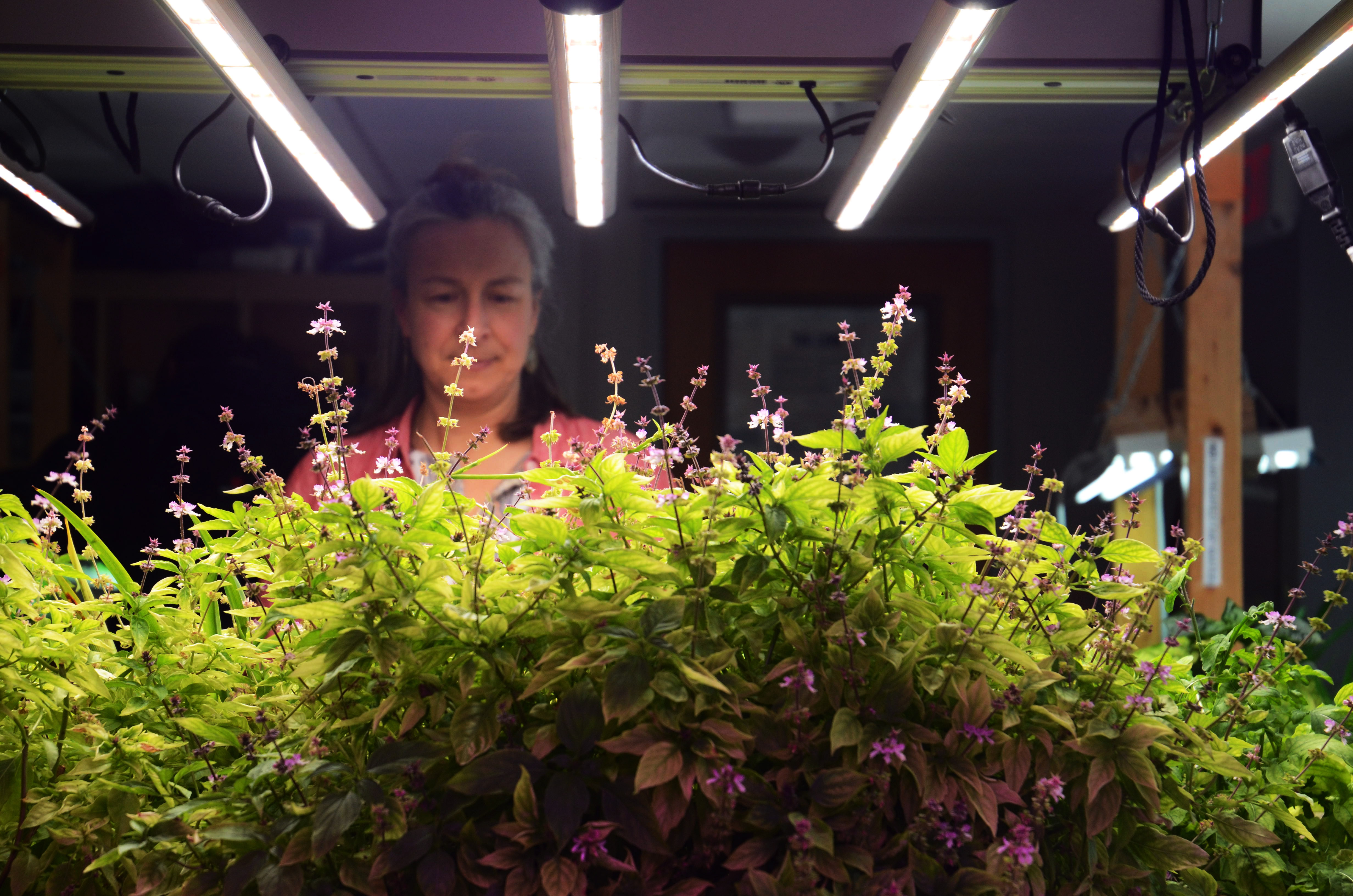By Kate Rogers, Community Editor
Karen Wilson, with a Ph.D in limnology, gets to study freshwater areas like lakes and rivers, and her research has taken her all over the world. She also happens to be an associate research professor in USM’s department of environmental science. At USM, Wilson does everything she can to get her students involved in real world research.
Wilson wanted to be a scientist from when she was very young, she said. Even despite being encouraged to do other things, she held onto her goal. After growing up in the Bangor area, she wanted to get as far away as possible, so she went to California for undergrad. She was really interested in “organisms and their relationship with the environment,” she said. So she got a degree in wildlife and fisheries biology from the University of California Davis. “I was in heaven,” she said.
For graduate school Wilson went to the University of Wisconsin in Madison and studied limnology. In Wisconsin she worked with researchers doing long term studies on the lakes. “When I started my Ph.D, I was handed 20 years worth of data,” she said. During her graduate studies, she worked with invasive species, and she was there for a long time. “Doing a Ph.D becomes more of a job than it is school. At some point you stop taking classes and just start working on your project,” she said.
After getting her Ph.D, Wilson taught for a year at the University of Minnesota, which she said was exhausting, but really prepared her for future teaching experiences. Then she took some time off from that and went to the University of Toronto, where she studied water quality in Lake Ontario. Finally, she and her husband— who is also an adjunct professor at USM— decided to come back to Maine. They chose Maine because they could get jobs in the same area, and because Maine is a great place to study freshwater systems.
Maine is where Wilson found what she called “my bread and butter.” She works with a fish called the alewife. This fish is special because, like many other species of fish it swims up rivers to lay its eggs and then returns to the sea, but unlike many others it often lives to swim up and lay more the next year. Wilson studies these fish all over the state, and has made great strides in re-establishing their population in Maine’s water. “I get to spend all this time in what I think are the most beautiful parts of Maine doing my work, really having a good time,” Wilson said enthusiastically. She told a story of being out on a lake on a beautiful night and thinking “I love getting paid for doing this,” she said.
Wilson also loves teaching at USM. She talked at length about the ways she gets to involve students in her research, from hiring them to allowing them to do it as part of class. Currently she is teaching a class on water quality where the students are doing a 10 week study on road salt contamination in Portland’s streams. The students go out and take real samples, analyze the data and will write their paper at the end of the semester. According to Wilson, this is the third year her class has done this study, and the local departments of environmental protection are very interested in their findings. “This is exactly the type of research they’ll be doing in the real world,” Wilson said. These projects are fun for Wilson as well, because she genuinely looks forward to reading their papers and learning from them.
Wilson praised USM for how creative they let her be with her teaching and the intimate class sizes. “You can throw out some of the lectures and instead have these really active labs where people are doing cool stuff that’s actually relevant,” she said. Even for people who don’t love teaching, Wilson said “There’s enough oddball things about teaching at USM … that this is the place you’d wanna be.”
One of the other exciting things biology students have access to is the aquaponics lab. Wilson gave a tour of the lab, showing off the different things students have growing and the fish they keep. They have several tanks of Tilapia, a fish that can adapt easily to changing conditions. The fish are necessary to the aquaponics system because the plants absorb the nutrients from the fish waste. The department even has an agreement with Sodexo, where they give the cafeteria lettuce and peppers grown in the aquaponics lab and get fish food in return.
The best thing about being a research scientist, Wilson said, is that the work is always changing. “There’s always new ideas coming up there’s always new questions to ask or projects to get involved with… you make your joy,” she said. Even though USM is rather small, Wilson gets to work with people all over the state in her research. “What you like to do you can pursue … as long as we are giving our students opportunities,” Wilson said. She and some other faculty as well as faculty from Orono recently wrote a grant for the national science institute, which if approved would give them three years of research. “You can do whatever you want if you are open to collaboration,” Wilson said.

